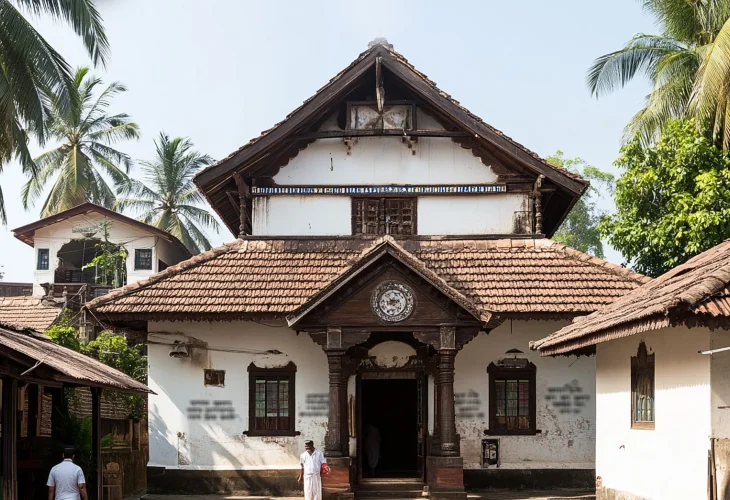History and Archaeology
From Kerala to Israel: The Story of Cochin Jews
An ancient Jewish community from India brought its faith, customs, and melodies to Israel

Many Jewish communities have made their way to Israel over the years such as Chassidic groups, yeshiva students, Yemenite, Moroccan, and Breslov. But there is another community, less known to residents of big cities: the Jews of Cochin, India. While cities like Bnei Brak do not have an official Cochin community, places such as Rekhasim, Nevatim, Mesilat Zion, Ta’oz, and Aviezer have been home to Cochin Jews for more than seventy years, ever since they first came to Israel. Over time, Cochin synagogues also opened in Rishon LeZion, Ashdod, and other cities.
The history of Cochin Jews is as long as it is fascinating. Like many Jewish communities, the exact origins of their settlement are not precisely documented, but their traditions and stories are full of wonder.
Kerala, the southwestern state of India where Cochin is located, gets its name from the local word for coconut, and is filled with tall coconut trees that have provided food and income for generations. Cochin sits along the Arabian Sea and was a spice trade hub as far back as the time of Abraham. Arab caravans carrying perfumes and spices across the Middle East often began their journey on India’s western coast.
According to Cochin Jewish tradition, the first Jews arrived in the area as emissaries of King Solomon, during his famous journey to the land of Ophir to bring back treasures, monkeys, and peacocks. The community also preserves a rare book, Chronicles of Gad the Seer, attributed to Gad, the prophet in King David’s time. Researcher Meir Bar-Ilan believes the book is truly ancient. The second part of it describes Jews coming to India during the exile of Shalmaneser.
The earliest written record of Jews in Cochin mentions a Jewish merchant named Abin who, in the year 55 CE before the destruction of the Second Temple, landed at the shores of Shinglee near Cochin, where he was greeted by a Jewish girl playing the flute.
Originally, Jews lived in Shinglee, but in 1341 a great flood destroyed its port and created a new natural port in Cochin. The Jewish community moved there, and its presence became well established.
Inside the Cochin synagogue are copper plates given by the emperor of Kerala, granting rights to an early Jewish leader named Joseph Rabban. Among these were remarkable privileges: the right to shoot from the great cannon, sound trumpets and shofars, spread white cloth underfoot, bear torches in daylight, use a royal sunshade, beat the elephant drum, and carry a leaf in processions through the streets.
Over time, nine Jewish communities developed in the area. The original Cochin Jews, who had been there for centuries, had different customs from later arrivals. One enduring synagogue is the Paradesi Synagogue, built by Sephardic Jews who came later. “Paradesi” means “foreigner” in the local language. The synagogue was built on land given by the Raja of Cochin, Rama Varma, and stands in the heart of the Jewish Quarter, known today as “Jew Town.” It even shares a wall with the Mattancherry Palace Temple so Cochin children probably had to bang the tables lightly when making noise during the reading of Haman’s name on Purim, so as not to disturb the neighbors.
When entering the synagogue, everyone removes their shoes, a sign of respect reminiscent of the Beit HaMikdash (Holy Temple). Worshippers walk barefoot and sit on carpets, including one gifted by Emperor Haile Selassie of Ethiopia. The synagogue has a clock tower, and its outer wall bears King Solomon’s words from the dedication of the Temple: “I have built for You a majestic house, an abode for Your eternal dwelling.”
When the State of Israel was established, the Jewish Agency invited Cochin Jews to make aliyah (immigrate to Israel), and they responded with joy. Over several years, organized operations brought community members to Israel, where they settled across the country. They have preserved their beautiful customs, distinctive prayer melodies, and colorful clothing for different holidays.
Their wedding traditions were especially grand. In India, weddings lasted fifteen days. The bride would visit the synagogue and kiss the Torah, and as she left, coins would be thrown in her honor. Large feasts followed, with many animals slaughtered, a tradition fitting for village life but less practical in modern cities.
During Chanukah, Cochin Jews remember Rabbi Nehemiah ben Abraham, their community’s great rabbi, by holding festive meals and sharing words of Torah in his memory. To this day, Cochin Jews in Israel proudly carry their heritage, blending the colors and sounds of Kerala with the eternal spirit of the Jewish people.

